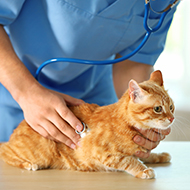Feline pancytopenia research fund launched

"We recognise the pain and upset this illness has caused" - Huw Stacey, director of clinical services, Pets at Home.
UK pet care business Pets at Home has announced a £100k research fund for feline pancytopenia, a rare bone marrow condition where the number of blood cells rapidly decrease.
The fund has been launched following an unusual spike in cases in 2021, which saw 565 cases between June and October.
During the feline pancytopenia spike, the Food Standards Agency (FSA) opened an investigation, but a definitive cause was unable to be found.
Pets at Home has committed to finding a long-term solution to the condition, and will use the fund to provide financial support to academics, institutions and researchers seeking to understand feline pancytopenia, identify causes and improve treatment options.
Huw Stacey, director of clinical services at The Pets at Home Vet Group, said: “For us, pets come first and always will.
“We supported the FSA’s investigation throughout but flagged at the time that we believed further research was required into this disease and its causes. As a result, we are launching this £100,000 fund to accelerate research into feline pancytopenia and improve understanding within this area.
“We recognise the pain and upset that this illness has caused, and our hearts go out to all the families whose cats suffered during the pancytopenia outbreak last year.”
“We hope that this funding will facilitate important research and lead to an improved understanding of this disease, supporting vets in providing pets and their owners with the best possible care and minimising and informing responses to any future outbreaks,” added Dr Karen Humm, associate professor in Transfusion Medicine and Emergency and Critical Care at the Royal Veterinary College.
The research fund is now open for applications until 31 May 2022, and any interested parties should contact pcpgrant@petsathome.co.uk for further information.



 The Veterinary Medicines Directorate (VMD) is inviting applications from veterinary students to attend a one-week extramural studies (EMS) placement in July 2026.
The Veterinary Medicines Directorate (VMD) is inviting applications from veterinary students to attend a one-week extramural studies (EMS) placement in July 2026.